Dr Maharaj Vijay Reddy from the School of Tourism has recently returned from the Tohoku region of North East Japan, where he explored the nature of the impact of the 2011 on the tourism industry of the North East Japan and identified the priorities for socio-economic revival and sustainable future of the coastal communities and local businesses including agriculture and fisheries. The Great East Japan earthquake (8.9 magnitude) and the tsunami that followed have had catastrophic impacts on Northern Japan creating economic, nuclear and humanitarian crises in 2011. The major part of fieldwork was carried out with the financial support 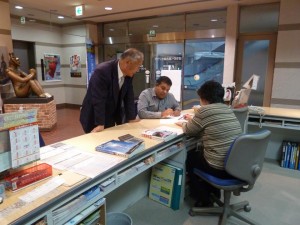
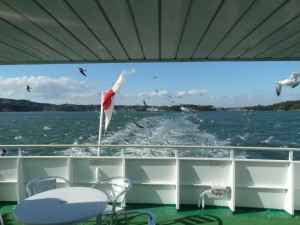
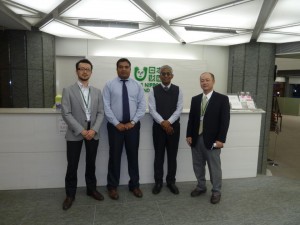 offered by the Great Britain
offered by the Great Britain  Sasakawa Foundation in London.
Sasakawa Foundation in London.
Dr Reddy’s very intensive fieldwork in March 2013 covered all the four Prefectures of the Tohoku on the Pacific coast, namely Miyagi, Iwate, Aomori and Fukushima. He has completed over 80 semi-structured interviews by meeting with multidisciplinary stakeholders from the four worst affected Prefectures as well as respondents and relevant organizations in Tokyo and other parts of the Japan. This significant project was completed with the prompt local help offered by the Directors related to the Departments of Environment, Fisheries, Infrastructure, Industry and Tourism within the Prefectural Government Offices of Miyagi, Iwate and Aomori.
Respondents include ANA Airlines, Japan East Railway, JAL City Hotels, Metropolitan Hotels, Monterey Hotels, Toyoko Inn Hotels, Tourism Associations based in famous locations such as Matshushima (Miyagi), Hachinohe (Aomori) and Morioka (Iwate), leading tour operators including JTB, relief agencies such as the Nippon Foundation, Ocean Policy Research Foundation and many other local businesses whose opinions are being translated (from Japanese language) ‘anonymously’ by the students at the School of Tourism for analysis and interpretation.

Dr Reddy expressed his sincere thanks to those respondents and the others who offered immense support. For instance, Mr Ishikua of Miyagi Prefecture Government, Mr Mikami of Aomori Prefecture Government, Mr Kobori of Japan National Tourism Organisation in Tokyo, Ms Mizuho of Monterey Hotel in Sendai, UNITAR Hiroshima, Sendai Tourism and Convention Bureau, and researchers at the Kwansei Gakuin University in Hyogo and the Fukushima University.


 COST
COST







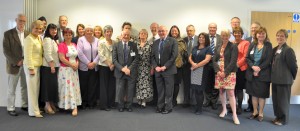
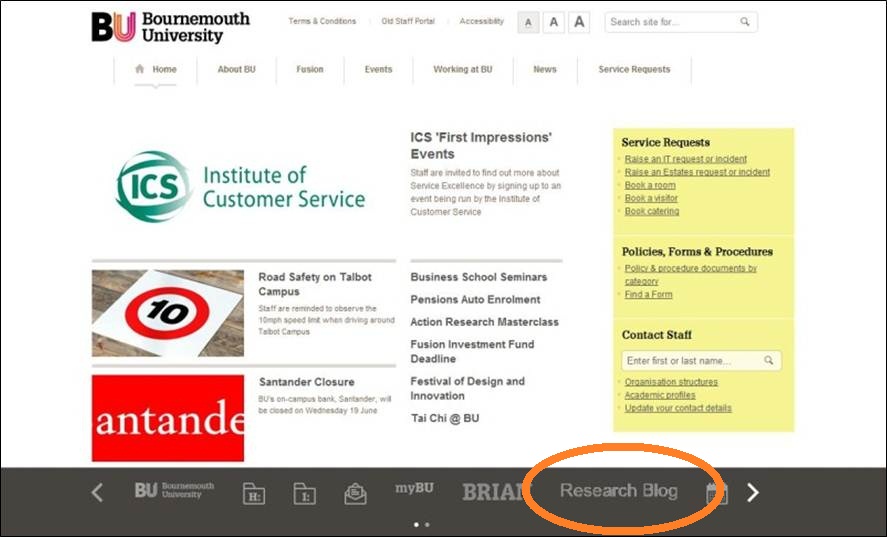

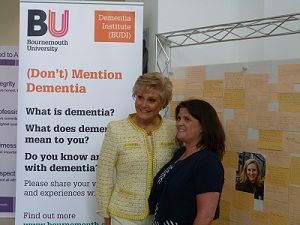 Over the last six months BUDI has been working to engage with the public and promote awareness and understanding of dementia. ‘(Don’t) Mention Dementia’ is an innovative exhibition created by BUDI and media artist Derek Eland (http://derekeland.com/), with the aim of giving a voice to people living with dementia.
Over the last six months BUDI has been working to engage with the public and promote awareness and understanding of dementia. ‘(Don’t) Mention Dementia’ is an innovative exhibition created by BUDI and media artist Derek Eland (http://derekeland.com/), with the aim of giving a voice to people living with dementia.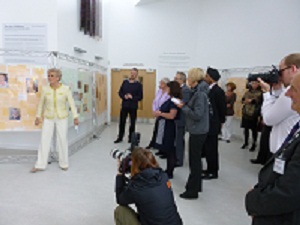


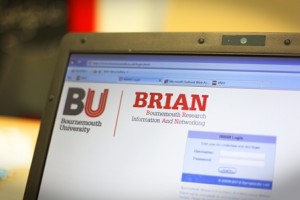












 SPROUT: From Sustainable Research to Sustainable Research Lives
SPROUT: From Sustainable Research to Sustainable Research Lives BRIAN upgrade and new look
BRIAN upgrade and new look Seeing the fruits of your labour in Bangladesh
Seeing the fruits of your labour in Bangladesh Exploring Embodied Research: Body Map Storytelling Workshop & Research Seminar
Exploring Embodied Research: Body Map Storytelling Workshop & Research Seminar Marking a Milestone: The Swash Channel Wreck Book Launch
Marking a Milestone: The Swash Channel Wreck Book Launch ECR Funding Open Call: Research Culture & Community Grant – Application Deadline Friday 12 December
ECR Funding Open Call: Research Culture & Community Grant – Application Deadline Friday 12 December MSCA Postdoctoral Fellowships 2025 Call
MSCA Postdoctoral Fellowships 2025 Call ERC Advanced Grant 2025 Webinar
ERC Advanced Grant 2025 Webinar Update on UKRO services
Update on UKRO services European research project exploring use of ‘virtual twins’ to better manage metabolic associated fatty liver disease
European research project exploring use of ‘virtual twins’ to better manage metabolic associated fatty liver disease